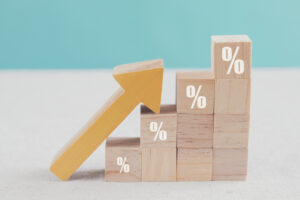Powell Is Promoting A Public Perception of Inflation That Is False: Fed Admits It in New Forecasts
The comments below are an edited and abridged synopsis of an article by Joseph Carson
The Fed claims that rising consumer price inflation is transitory, pushed higher by base effects and pent-up demand as the US economy re-opens. That view is in direct conflict with policymakers’ latest inflation forecast and the inflation data.

Policymakers’ forecasts for inflation represent changes from the fourth quarter of 2020 to the end of 2021. There is no base effect in that forecast since consumer price increases turned positive by the end of 2020.
Thus the base effect argument is false, and policymakers admit it in their published forecasts. The transitory nature of the jump in inflation is also untrue, as they expect it to run an entire year.
Fed Chair Jay Powell argued that inflation was boosted by special factors, citing the jump in lumber, used cars and truck prices as examples. Reported consumer price inflation does not include lumber, although it is an essential part of housing construction and housing inflation.
The old CPI included house prices in its measurement, and adjusting the currently reported inflation numbers for house price inflation would push CPI (and core CPI) to double-digit gains, something not seen since the 1970s.
The curious part of the Fed’s new inflation forecast is the 1-year jump (biggest gain in core CPI in three decades), and then inflation miraculously moves back to the 2% target.
In recent years, policymakers have argued that inflation cycles are not linked to tight labour markets. They still say that inflation is a monetary phenomenon, yet forecast an abrupt slowing in consumer price inflation while maintaining the most aggressive monetary policy on record.
Policymakers are running a risky experiment with price and wage pressures present, and are still moving forward with official rates at zero and the promise to buy billions of more financial assets. Are policymakers sending the message that monetary policy does not matter, or are they clueless about the economic and financial implications?
Unfortunately, this is not an academic debate. Policymakers are allowing this to play out in real time, with huge economic and financial risks if they are wrong. Investors forewarned.
